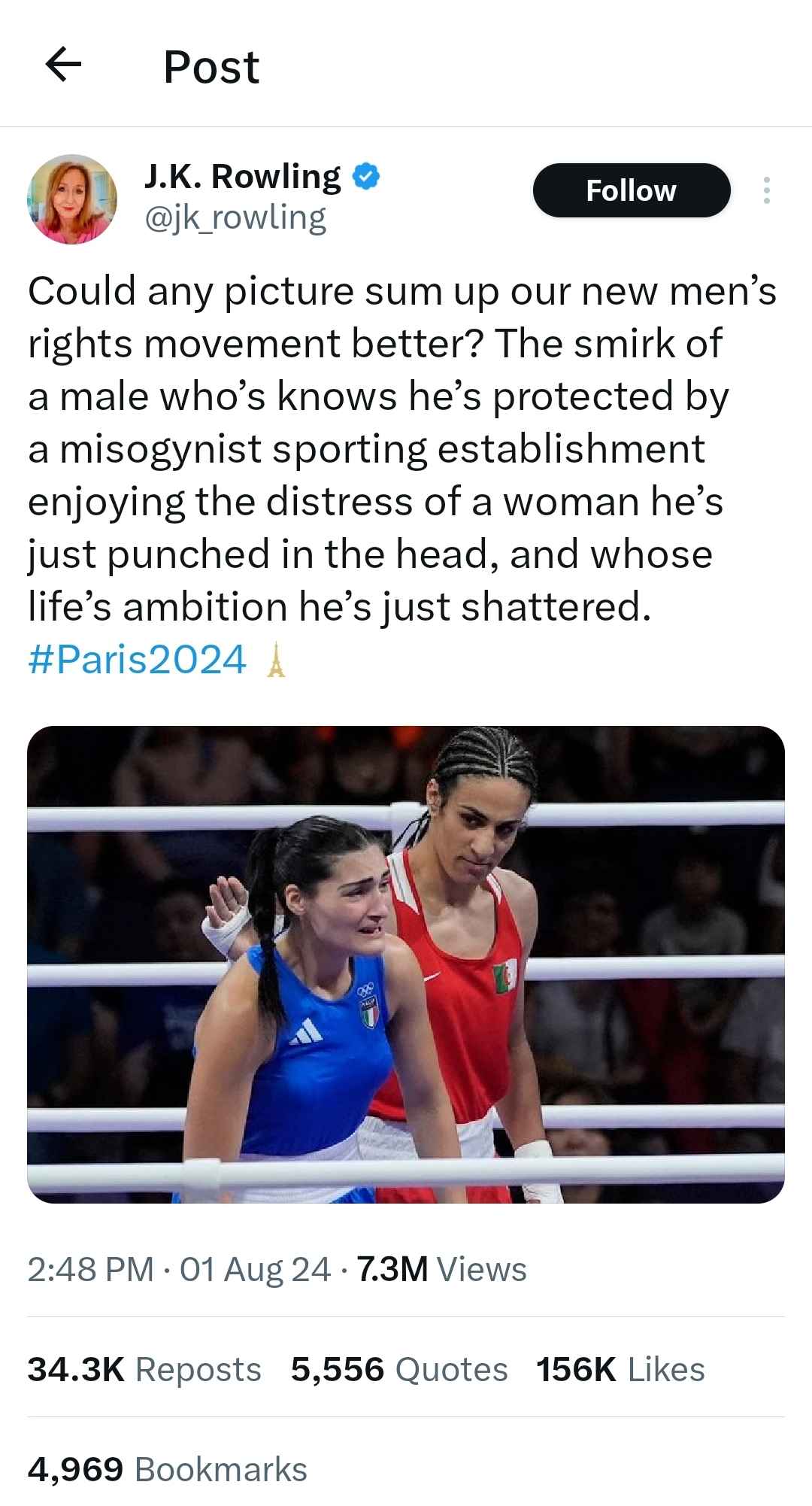the_dunk_tank
It's the dunk tank.
This is where you come to post big-brained hot takes by chuds, libs, or even fellow leftists, and tear them to itty-bitty pieces with precision dunkstrikes.
Rule 1: All posts must include links to the subject matter, and no identifying information should be redacted.
Rule 2: If your source is a reactionary website, please use archive.is instead of linking directly.
Rule 3: No sectarianism.
Rule 4: TERF/SWERFs Not Welcome
Rule 5: No ableism of any kind (that includes stuff like libt*rd)
Rule 6: Do not post fellow hexbears.
Rule 7: Do not individually target other instances' admins or moderators.
Rule 8: The subject of a post cannot be low hanging fruit, that is comments/posts made by a private person that have low amount of upvotes/likes/views. Comments/Posts made on other instances that are accessible from hexbear are an exception to this. Posts that do not meet this requirement can be posted to !shitreactionariessay@lemmygrad.ml
Rule 9: if you post ironic rage bait im going to make a personal visit to your house to make sure you never make this mistake again
view the rest of the comments


All five non-transphobic ride-or-die Potterheads: "You're supposed to do a heckin' death of the authorino!"
Me: OK
yea 'i promise its better if you completely ignore the context and history of its creation' is not the artistic win they think it is lol, like for really great art you want to know more, you want to know how it was made and by who and what lead to the ideas behind it and what influences the artist(s) drew from, this 'death of the author' thing is classic reddit-ism championing less engagement and less intellectual rigor in our media and art discourses, demanding you 'turn off your brain' and divest yourself of all critical reasoning so you can 'shut up and enjoy' the corporate slop without too much friction. its anti-intellectualism and anti-art, even anti-humanity.
Depends on how its used. If anything I see things like "your autism headcanon is wrong because the author didn't intend that" as a reddit-ism.
Sometimes its used that way, sometimes its not. Most people citing it have no idea what the entirety of Barthe's theory was anyway. They can mean anything from "I dont think I should have to engage with the reality of the LIVING author's intent, the blatant bigotry in the work, and the actual hateful things they are actively doing in the world" to "I dont care if its intended, [character] reads [neurodiverse or queer] to me".
literally google the phrase 'death of the author reddit' it is absolutely a thing that is discussed there. your personal internet anecdotes are not all-encompassing objective universal truths.
No yeah unironically that would be a net good for everyone and if they really weren't transphobic they would agree with that. I have some mostly nostalgic affection for Harry Potter left over in me, mostly emotional attachments to a few specific characters, it would be nice to be able to able to engage in transformative works and shit without supporting her so if she was dead that would be great.
(I disagree with being so dismissive of death of the author though. Bartes's whole theory sucks because the idea that authorial intent means nothing isnt true but the way people tend to be mean it when they cite it is things like "headcanons are as real as you want them to be, it doesnt matter if the author intended them" and as someone who's had my autistic headcanons dismissed because of "the author didnt intend that" I think thats important.)
Clearly, Chuck Tingle's Harriet Porber series is the morally superior alternative
In my (non media literate) opinion, the author's intentions are often not where the use in considering the author's views lie. Every person is a product of their time and place, and that's bound to cause them to communicate ideas based on their biases, ideology, and other conditions even (maybe even especially) when they're unintentional.